The simple words stand out, declarative in their silence:
UNFETTERED AND FREE
I wonder how many people pass your unassuming gravestone and take those words for granted. Perhaps they don’t know your remarkable story, which is so uniquely American in both its ugliness and triumph.
While you rest in peace here in Cleveland’s Woodland Cemetery, much of your life was anything but peaceful. I won’t start at the beginning though, Lucy. Instead, I’ll jump to an early January morning at a spot about three miles west of where you are now.
It was nearly an hour before sunrise in 1861 when four men approached 151 Prospect Street, forced their way inside and pried your desperately clutched fists from a bed frame. They dragged you out of the house and into a waiting vehicle, which sped away amid the cold dawn.
Your crime? You had escaped the servitude of a well-to-do Virginian real estate broker, William Goshorn, in October 1860 and fled to Cleveland.
After a tumultuous legal fray, you became the last person in America returned to slavery under the infamous Fugitive Slave Act of 1850. Against your will, you were returned to Goshorn’s custody and deported back to Wheeling, Virginia, to a life you detested and likely feared. Your story, however, did not end there.
In April of that same year, 1861, the country erupted in Civil War and Union forces seized Goshorn as a political prisoner. After two harrowing years, you finally became a free woman in accordance with the Emancipation Proclamation and moved north. In Pittsburgh, you married a Union soldier, F. George Johnson, before eventually returning to Cleveland, which you called home until your death in 1906.

For the most part, things got better in the United States since your death 118 years ago. It was a slow go, but Americans won more and more freedoms with laws to enforce them. Women got the right to vote 105 years ago. And dig this, Lucy—on January 20, 2009, one Barack Obama became President. Your fellow Ohioans helped to elect him and four years later, they voted to keep him in the Oval Office.
Obama’s inauguration was one of America’s proudest moments, but things really started to go south after that.
On May 30, 2017, I took this photo about 10 miles from where you lie.
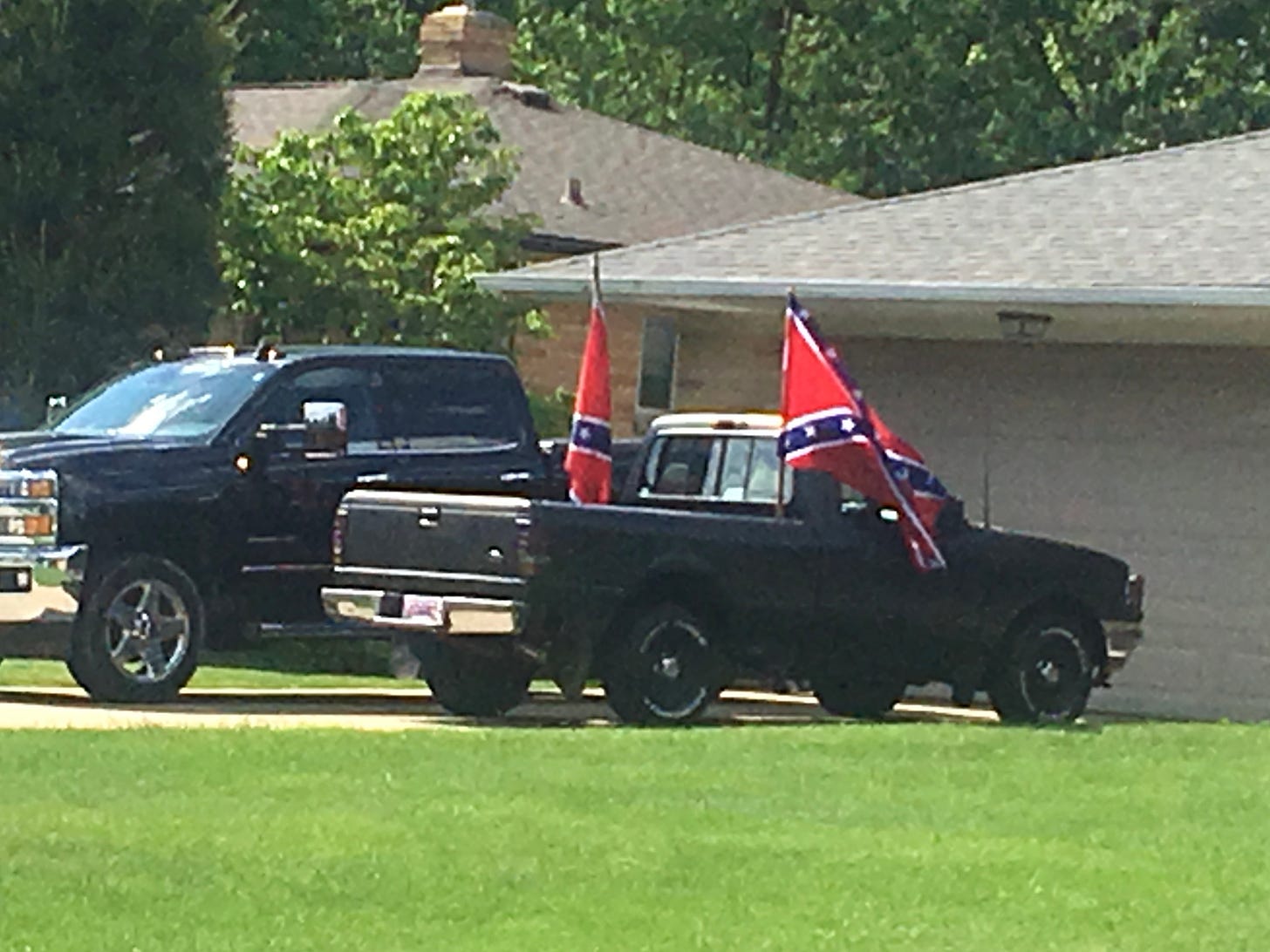
Since then, a whole lot of guys like Goshorn and his thugs are trying to undue the good forces that freed you. They’re using innocuous phrases likes states’ rights. Sound familiar?
It all boils down to the same thing: One group of people wants power over another. Funny how the bad guys always pick the opponents who are easiest to beat. Bullies sure do love punching down, don’t they, Lucy?
In your day, they picked on enslaved people who had no rights to begin with. Today, the bullies are targeting a particular set of kids and teens as well as pregnant women. I’m talking about stuff like crossing state lines. Again, sound familiar?
As I said, voting has come a long way, but they’re doing what they can to snuff out the voice of the people as well, and Ohio is leading the pack.
I was born in 1965, two and a half miles from your headstone. In a sense, you could say I’ve been here longer than that. My dad’s half of the family has been calling Ohio home since the early 1800s. Every molecule of my body comes from this state; I’ve got pure Lake Erie water coursing through my veins.
When others see moles on the Buckeye State, I see beauty marks. I love the close humid summers and industrial relics. I love our sad weird corners. I even love miss the unforgiving frozen ground of January.
And now here I am blinking at your headstone in this cemetery, just 500 feet away from the rows of headstones marking Union soldiers who fought for your freedom, wondering if I know anything at all about my home state, your adoptive state, what you called a “freestate”.
As I wrote this letter, Lucy, I ran across a lot of memories, including a trip last summer 80 miles south to the Tuscarawas County Fair, the grounds for which are unique to say the least.
From the Ohio Civil War site:
To help speed soldiers’ inductions into Ohio’s military, [Ohio Governor William] Dennison soon authorized the establishment of other camps across the state, including Camp Meigs at Canal Dover, Ohio. Officials named the base after former Ohio Governor Return Jonathan Meigs, Jr. The camp was located at the site of the Tuscarawas County Fairgrounds and remained in use during 1861 and 1862. The 51st Regiment Ohio Volunteer Infantry and the 80th Regiment Ohio Volunteer Infantry organized at Camp Meigs.
I wonder what the Union soldiers who were mustered there—or for that matter the more than 35,000 Ohioans who died in the Civil War—would think about this fella roaming the midway that day.
The fight continues, Lucy. Maybe it never really ended.
Love, Erin
ps: To this day, amateur “historians” will huff and roll their eyes whenever the impetus of the Civil War comes up in conversation.
“This country went to war over states’ rights,” they say with dismissive irritation. “It wasn’t about slavery.”
Maybe they should review the Declaration of Causes of Seceding States, which includes statements like this one put forth by the great state of Mississippi:
Our position is thoroughly identified with the institution of slavery—the greatest material interest of the world. Its labor supplies the product which constitutes by far the largest and most important portions of commerce of the earth. These products are peculiar to the climate verging on the tropical regions, and by an imperious law of nature, none but the black race can bear exposure to the tropical sun. These products have become necessities of the world, and a blow at slavery is a blow at commerce and civilization.
States’ rights, indeed.
pss: Rest in peace, Lucy. Living through one civil war is enough.

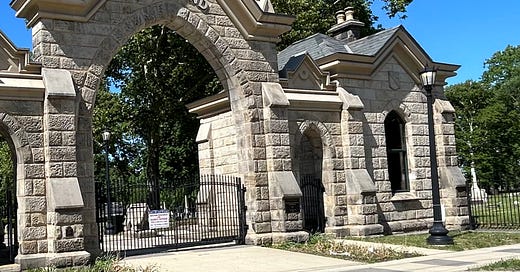

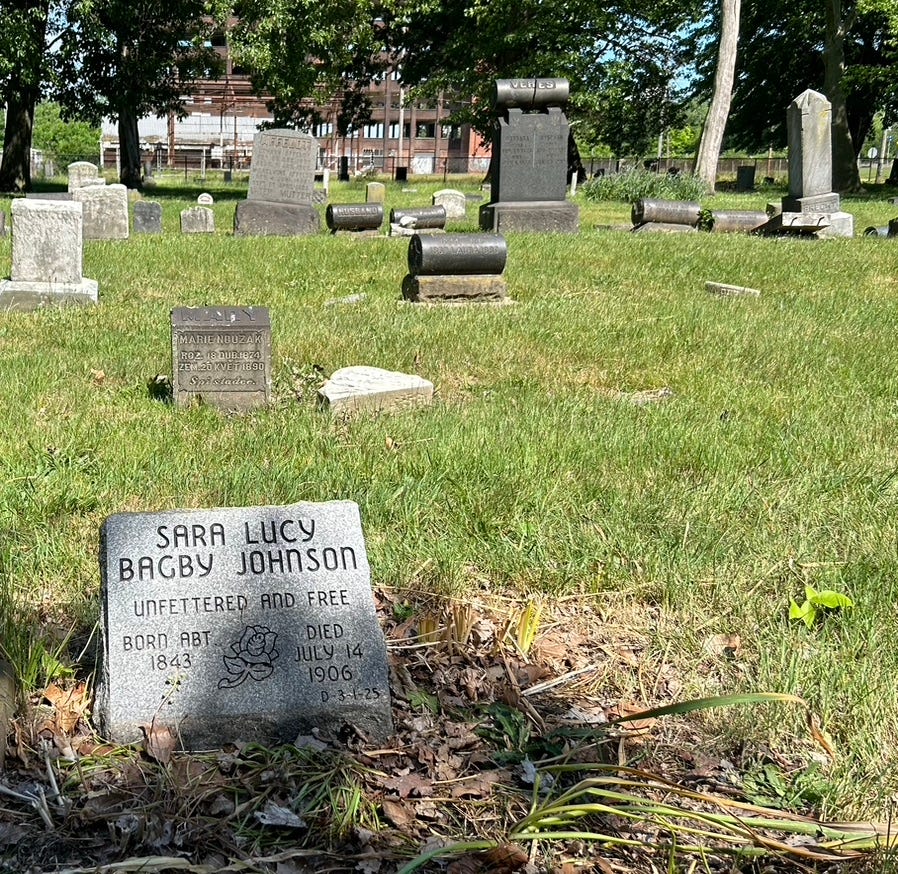
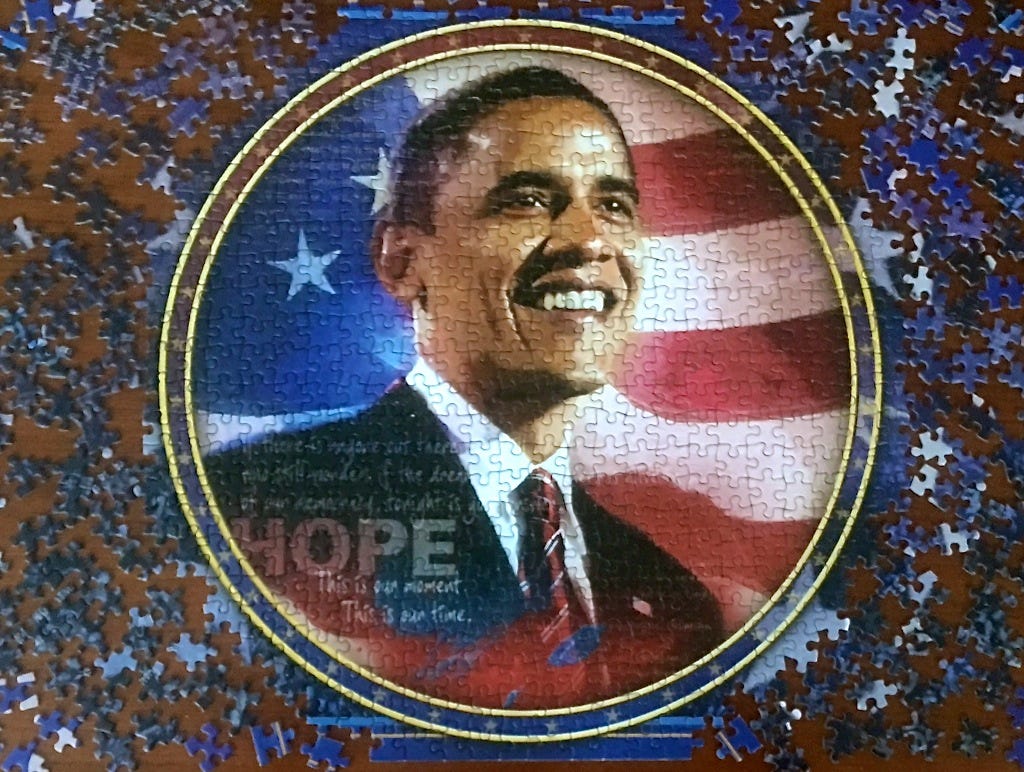
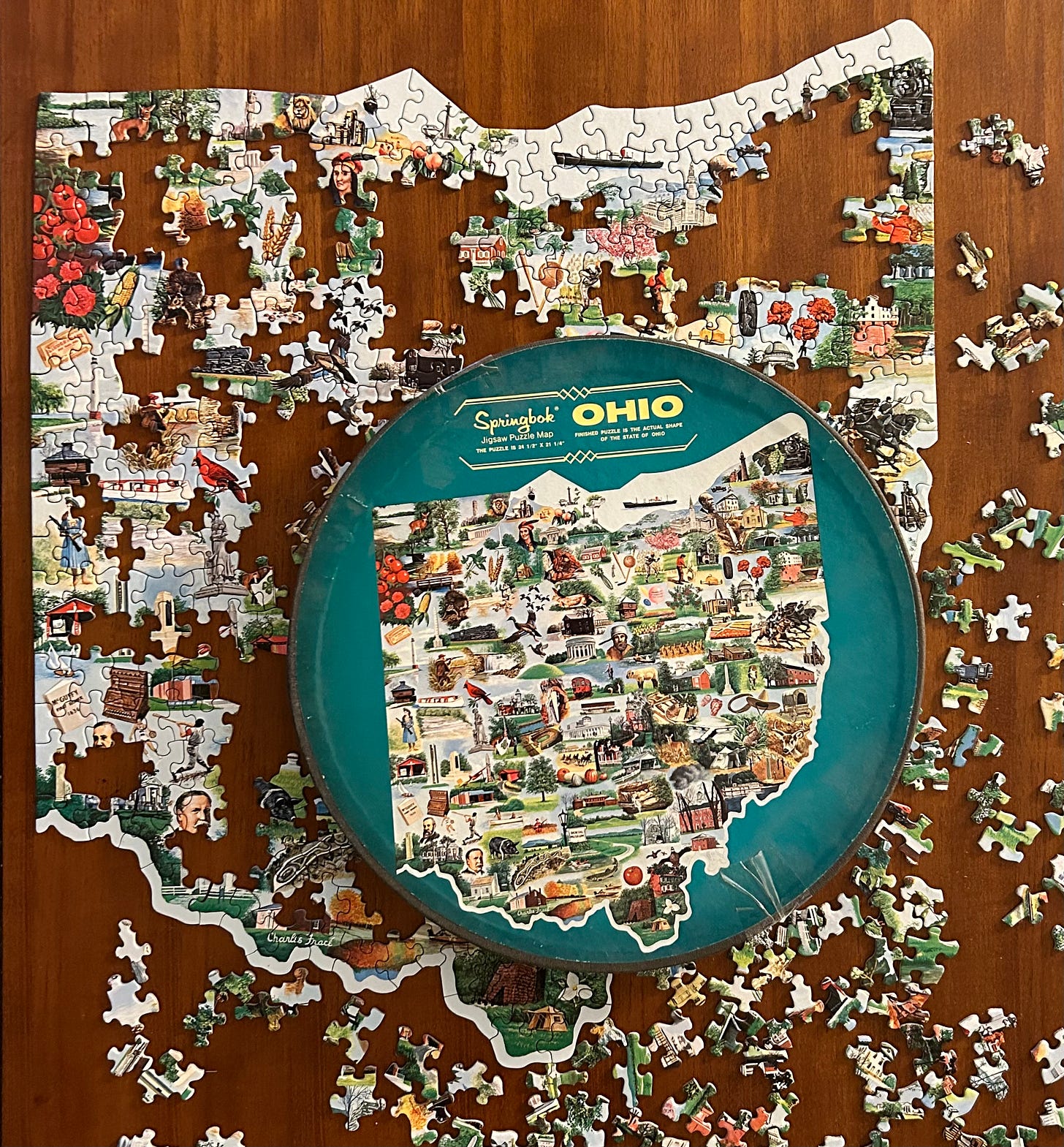
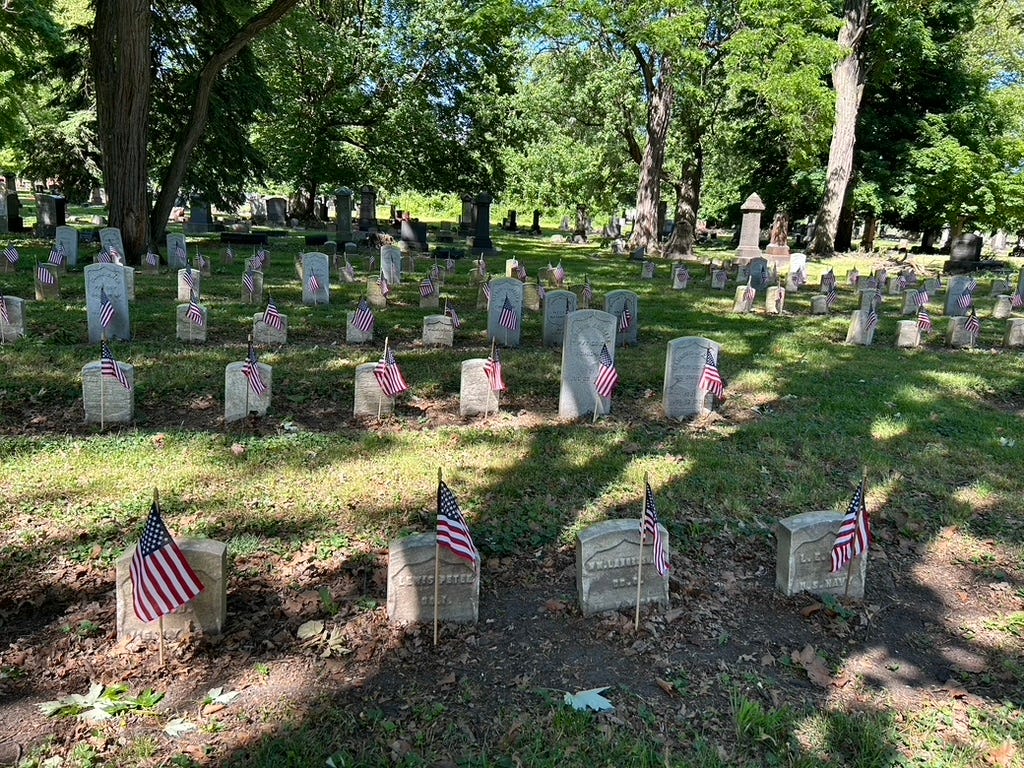

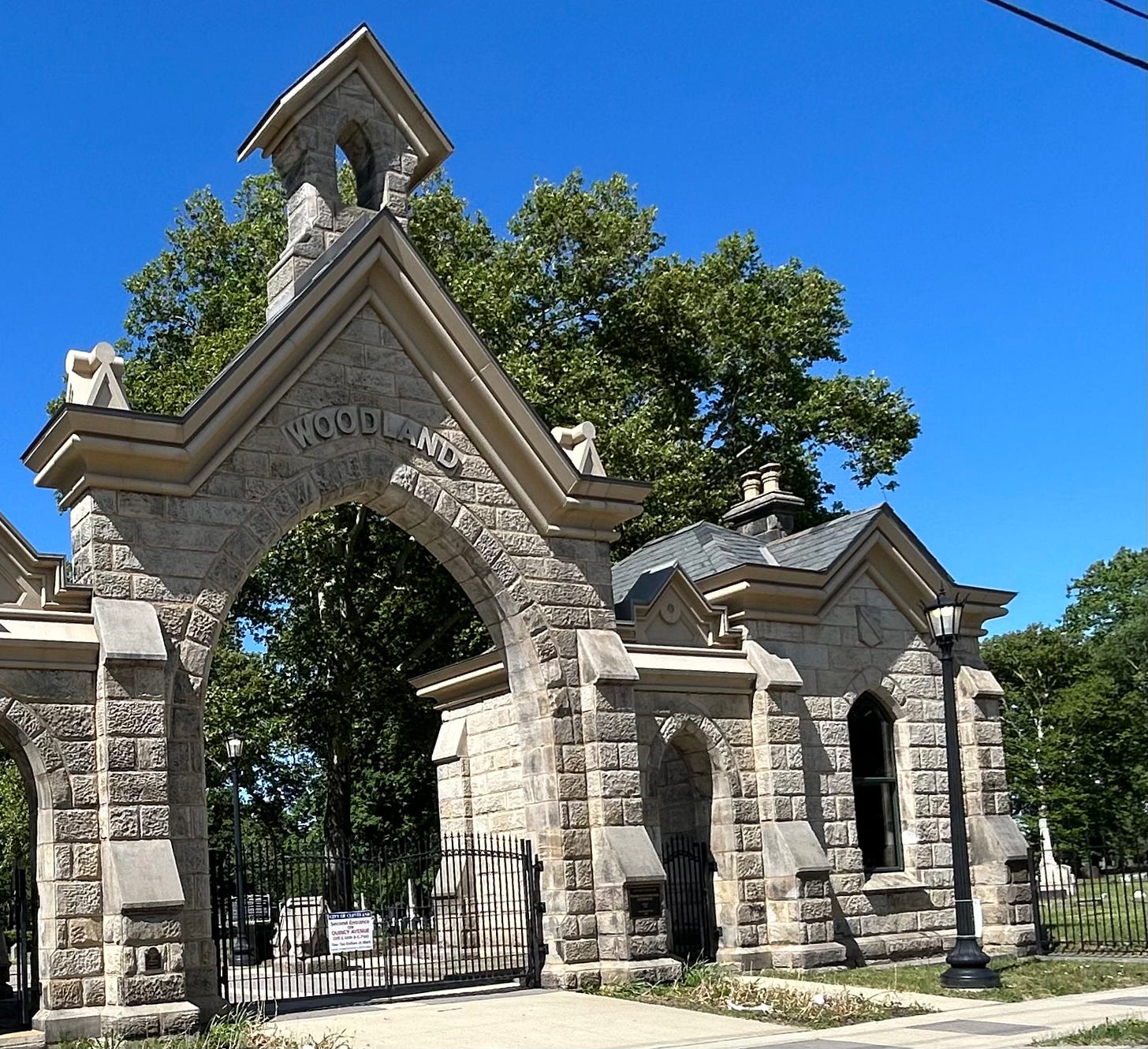
I always found it troubling how so many Ohioans, likely descendants of Union soldiers, found it right to wave the flag of their ancestors' enemy.
A couple have told me over the years that it was out of resentment; that their forefathers were forced to fight in a "rich man's war".
Weirdly, tho'; I've never heard that beef from the descendants of the other side, to whom such a grievance would've been much better applied.
Another worthwhile cemetery to tour is on Johnson’s Island, in Sandusky Bay. It was the site of a Civil War POW camp, and there are several dozen graves of prisoners who died there. It’s incredibly sad, and had me in tears as I walked through. You can hate the Confederate cause, as I do, but still be moved to tears looking at the headstones, some of teenage boys who died far from home. There are several headstones marked “unknown,” even more sad.